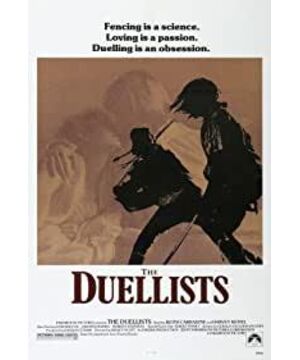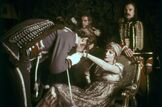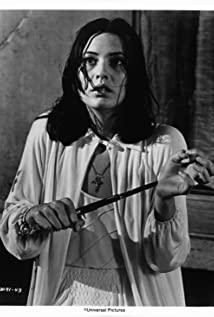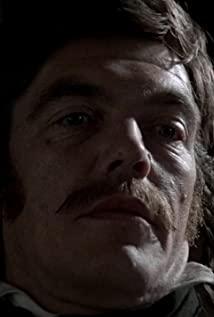Scott's 1977 work, based on a true story in French history, the duel between Saarrowitz and Dupont.
In the early 19th century, Hubert and Philo, two officers under Napoleon in France, had a dispute over trivial matters. Philo thought that Hubert had insulted him and challenged him. After the first duel, he refused to accept it and continued, so it got out of hand, and the two people's duel on and off lasted for fifteen years. In the past fifteen years, Hubert and Philo have experienced the rise and fall of Napoleon, various wars, promotions, imprisonment, marriage and childbirth, and it was not until they were about to twilight that they realized how little these duels between the two were. significance.
Duel in a broad sense has a long history. The relationship between the two usually starts like this: "What are you looking at?" "Looking at you!" "Look at one more try!" "Just try it!" Until now we see this scene from time to time.
The duel, officially recognized by historians, was a Germanic race that took place in the sixth century AD. Two farmers sued the court over the ownership of a sheep. The reason is "I believe that God will bless the true owner of this sheep". This is legally named a "judicial duel".
Judicial duels are not only applicable to criminal cases, but can also be extended to civil cases. There are also many rules, such as the need to specify the location of the duel and to have the witness of a judge or lord. Later, it was changed to a friend of both parties to testify. It can be carried out between two people, or it can be fought by a group of people. Thinking about it carefully, although the reason of "let God judge" is not wrong in logic, it is indeed a bit far-fetched in implementation. It's like a person who finds money on the ground. For the sake of psychological balance, he throws the money into the air and says, "God, take the money back. If you don't want it, then give it to me." Considering these factors Finally, under the pressure of the church, the judicial duel was cancelled.
But things were not over. In Europe at that time, if the people had any disputes in private, especially when the honor of the nobles was involved, they were still accustomed to use a duel to resolve it, that is, duel of honor. Officials have repeatedly banned. Especially in France and Russia after the fifteenth century, this duel intensified. The film reflects what happened during this period.
The weapon of the duel was the club at first, and later developed into the sword, and the pistol after the appearance of the hot weapon. If the duel continues to this day, I am afraid that the tank will be driven into battle.
Japan also has duels. The way of dueling is the same as their national character, which is more abnormal. Duels were generally fought between samurai, and in addition to the usual rules, assassinations were allowed before the duel. In everyone's mind, this kind of assassination is nothing to be ashamed of. Who made you unprepared? After the defeat of one of the samurai, his disciples also committed suicide collectively, which is really tragic. So in Japan, assassination and suicide are also part of the duel.
It is said that it is a duel for honor. Among those people, honor has always been advocated first and life second. The honor of Westerners is actually what we call face. Now that the honor has been handed over, I have to take the second bet. This is a logical idea. Of course, the victorious side will return home in good clothes, while the losing side will have lost both honor and life. For example, Hubert and Philo in the film are respected because of their duels. Occasionally there are similar things in China, but we still have a word, called "compromising". This reflects the higher wisdom in Confucianism. Can endure the humiliation of the crotch for lofty ideals. With fate, it is possible to wash away the shame and achieve your ultimate goal.
In the film, Philo has always been an active challenger, he is a gambler, and he never tires of it. Hubert, on the other hand, responded passively. It was not until fifteen years later that he woke up and said: "For fifteen years, you have been haunting me, and I will never do what you say. Since then, I have been deceived by your reputation, and now you have to obey me."
The film does not reflect deeper themes. But he analyzed the ignorant behavior of duel very thoroughly. As Schopenhauer once remarked: "Similar to the influence of venereal diseases is the influence of cavalry. Society is rigid, tense and serious because of its influence, because every word one has to think carefully." Now, the act of dueling is almost extinct, which speaks to the progress of civilization. However, the idea of gambling for honor and face is still deeply rooted in many people, and the resulting methods have changed, such as suicide, revenge and so on. More and more dirty and dark. Proving to the world that the kind of thinking that instigated the duel is still lingering. This is especially true among underdeveloped countries and people at the bottom.
The picture of the film is beautiful, obviously influenced by European art. The aristocratic salon at the beginning resembles the baroque painting style of the 18th century, and the scene when the officers gather in the field is reminiscent of Rembrandt's "Night Watch". The shots of the countryside fields resemble Miller's style. There are also seemingly random but carefully placed fruits that make for a perfect still life. It's worth going to see the movie for these shots.
View more about The Duellists reviews











